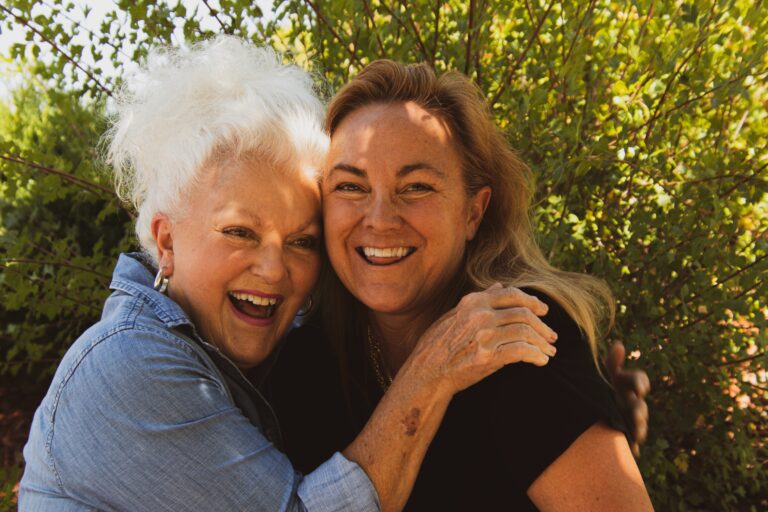In the tapestry of humanity, caregiving is a thread that weaves through generations, cultures, and societies. It is a profound act of compassion and service, driven by a deep-rooted purpose that places the needs and well-being of others above all else. As Tia Walker so eloquently put it, “To care for those who once cared for us is one of the highest honors.” Let us embark on a journey to explore the profound connection between caregiving and a service mindset.
The Heart of Caregiving
At its core, caregiving is a multifaceted endeavor. It encompasses a wide range of responsibilities, from tending to physical needs like bathing and medication management to addressing emotional and psychological well-being. But what sets caregiving apart from other roles is the heart that goes into it.
A compassionate caregiver’s mindset is rooted in the genuine desire to provide help and support. It’s about recognizing vulnerability in others and stepping up to offer assistance, comfort, and companionship. This willingness to put another’s needs first, even when it requires personal sacrifice, is the essence of a service leader.
The Selflessness of Care
Caregiving often involves selflessness that goes beyond the call of duty. Whether it’s caring for an aging parent, supporting a friend through a difficult illness, or working in a professional caregiving capacity, the act of caring requires putting aside personal concerns and focusing on the person in need.
In many cases, caregivers dedicate significant portions of their lives to this noble pursuit. They become the pillars of strength for those they care for, providing not just physical assistance but also emotional sustenance. It’s a profound act of giving, driven by an unwavering commitment to enhancing the quality of life for another human being.
Empathy and Compassion
A service mindset, which underpins caregiving, is intimately connected with empathy and compassion. Empathy is the ability to understand and share the feelings of another, while compassion is the genuine desire to alleviate suffering. Caregivers possess these qualities in abundance.
When a caregiver looks into the eyes of the person they are caring for, they see more than just a patient or a loved one in need. They see a fellow human being with hopes, fears, and dreams. This ability to connect on a deeply human level is what makes caregiving so profound. It’s about more than just performing tasks; it’s about making a meaningful difference in someone’s life.
The Challenges of Caregiving
While caregiving is a noble and rewarding pursuit, it comes with its fair share of challenges. The emotional toll of witnessing a loved one’s suffering or dealing with the demands of caring for someone with a chronic illness can be overwhelming. Yet, caregivers persevere, guided by their service mindset.
Caregivers often find themselves juggling multiple roles – that of a healthcare assistant, therapist, advocate, and friend. This requires immense patience and resilience. It’s a testament to the strength of the human spirit and the power of a service mindset that caregivers continue to provide care even in the face of adversity.
Professional Caregiving: A Calling
For many, caregiving is not just a job; it’s a calling. Professional caregivers, whether working in hospitals, nursing homes, or home care settings, are driven by a deep sense of purpose. They choose this path because they are drawn to the idea of making a positive impact on the lives of others.
These individuals embody the service in its purest form. They dedicate their careers to helping those in need, often working long hours and dealing with emotionally challenging situations. It’s their unwavering commitment to service that ensures that the most vulnerable in our society receive the care and attention they deserve.
The Ripple Effect of Care
Caregiving has a ripple effect that extends far beyond the immediate recipients of care. When we witness acts of caregiving, it inspires us to be more compassionate and considerate in our own lives. It reminds us of the power of human connection and the importance of reaching out to those in need.
In a world often characterized by self-interest and individualism, caregiving stands as a shining example of the beauty of selflessness and service. It teaches us that true fulfillment often comes from giving rather than receiving.
Conclusion
In the words of Tia Walker, caring for those who once cared for us is indeed one of the highest honors. Caregiving, deeply rooted in service, is a testament to the best aspects of our humanity. It’s about giving without expectation, loving without conditions, and providing support when it’s needed most.
As we navigate the complexities of life, let us remember the caregivers who dedicate themselves to the well-being of others. Their actions serve as a powerful reminder that the essence of our shared humanity lies in our ability to care for one another. In the spirit of a service mindset, let us honor and celebrate caregivers, for they are the heart and soul of compassion in our world.
📸 by LOGAN WEAVER | @LGNWVR on Unsplash


From a young age, Stacey’s link to the senior care industry grew alongside her mother’s work at a nursing home, where she often accompanied her. By her early teens, she secured her first official job at a nursing home, laying the foundation for a profound journey in senior care spanning over four decades. Her roles varied from opening assisted living and memory care residences to working in nursing homes and independent senior living communities. As the former Director of Fun for 300 independent seniors, she expertly organized daily events and trips. Stacey’s unwavering passion, nurtured by her family, and professional dedication as a recreation therapist, reflect her deep commitment to preserving the dignity and well-being of seniors.
Stacey’s senior care expertise has been recognized by the media including U.S. News and World Report and Care.com.
Stacey and her husband Bryan are the owners of the senior in-home care agency A Place At Home – North Austin.




